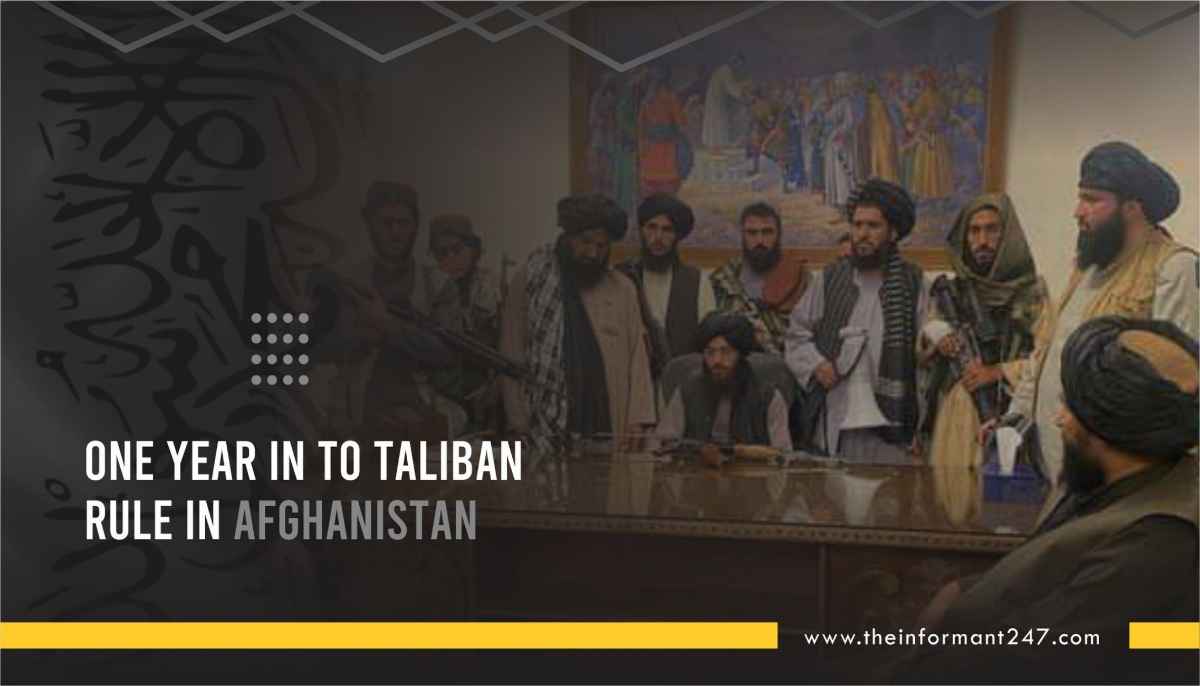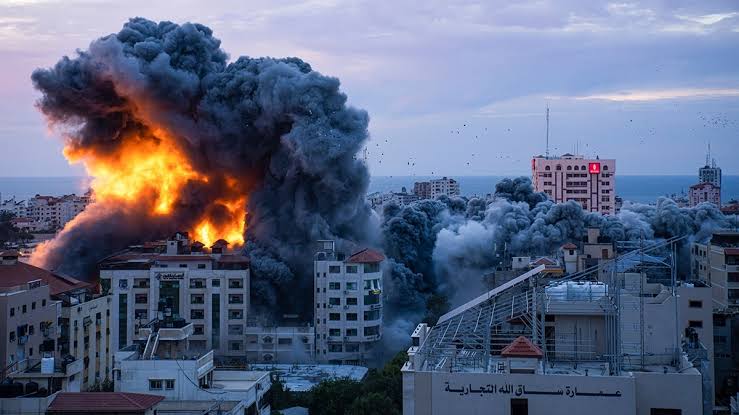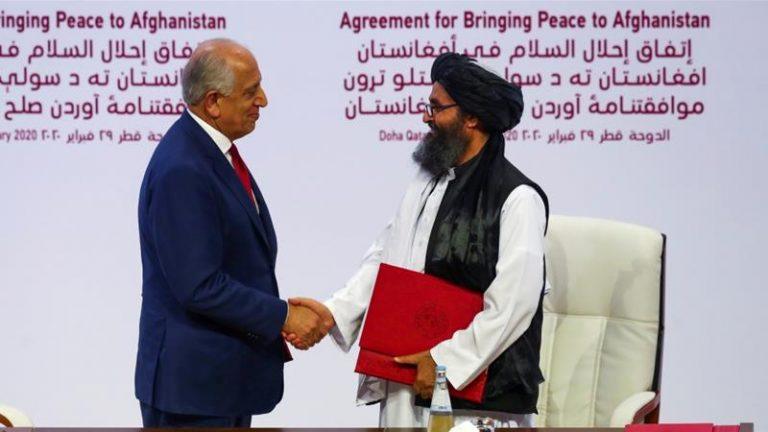Timeline of Events | One year into Taliban rule in Afghanistan
Exactly a year ago, the Taliban consolidated their return to power by the capture of strategic Afghan cities, including Kabul, the state capital, at a speed no one predicted. It was indeed a prized victory for the group that had fought local and international forces for nearly two decades since they were forced out of power in 2001 by an American-led invasion.
One year since their return to power, the Taliban regime, alias Islamic Emirate of Afghanistan, remains in diplomatic isolation and on the world stage has no formal recognition. Increasingly, the Taliban-ruled Islamic Emirate is at odds with Western powers on policy issues such as press freedom and human rights.
Here is a timeline of events of the past 365 days;
15 August 2021
The Taliban take control of the Presidential Palace in Kabul, the Afghan state capital.
President Ashraf Ghani flees abroad.
30 August 2021
The last American plane departs Afghanistan, ending nearly two decades of Western military presence in the country.
7 September 2021
Twenty-three days after the capture of Kabul, the hardline Islamist group unveils a new interim government.
The all-male cabinet is led by Mohammad Hasan Akhund, who serves as acting prime minister.
9 – 10 October 2021
Delegates from the Taliban and the United States hold physical talks in Doha, the Qatari capital.
The two-day meeting, the first since the Taliban’s return to power, features discussions on human rights, security, and humanitarian assistance.
17 November 2021
Acting Foreign Minister Amir Khan Muttaqi calls on the US Congress to release nearly $9.5 billion in frozen Afghan assets seized by Washington.
17 December 2021
Saudi Arabia sends more than 65 tonnes of aid, including 1,647 food baskets, to help mitigate Afghanistan’s worsening humanitarian crisis.
24 January 2022
The Taliban and Western envoys meet in Oslo, the Norwegian capital, to address the country’s deepening humanitarian and economic crisis.
16 February 2022
A Taliban delegation holds discussions with EU and US diplomats in Qatar as the regime, among many other things, seeks to secure international legitimacy.
23 March 2022
Hours after reopening high schools for girls, the Taliban-led government abruptly reverses course and orders them closed. The move draws widespread condemnation from foreign governments, prompting the United States to cancel planned talks with the regime.
29 April 2022
In a recorded message ahead of the Eid al-Fitr holiday, Taliban supreme leader Haibatullah Akhundzada calls on the international community to recognise the re-established regime.
7 May 2022
The Taliban orders women to cover their faces in public, a restrictive policy that sparks both domestic criticism and international outcry.
22 June 2022
A powerful earthquake strikes eastern Afghanistan, killing more than 1,000 people and injuring over 1,500. The disaster, the country’s deadliest in 20 years, poses a major logistical challenge for the Taliban administration.
30 June – 2 July 2022
The Taliban leadership convenes a three-day assembly attended by more than 3,000 Muslim clerics and tribal leaders, the first major gathering since their return to power.
2 August 2022
In a statement, the Taliban condemn but do not confirm the killing of al-Qaeda leader Ayman al-Zawahiri in a US drone strike.
11 August 2022
Prominent Taliban cleric Sheikh Rahimullah Haqqani is killed in a seminary blast in the capital, Kabul.
What does the future hold?
As the Taliban-led government enters another dispensation, Afghanistan appears to be sliding back toward the pre-2001 rule that was based on strict interpretation and enforcement of Islamic law and order. The last time the Islamic Emirate was in power, policies of systematic oppression of women were imposed – they were barred from public life and education.
Currently, the Taliban runs an aid-dependent economy – one in freefall – due to sanctions and exclusion from international financial institutions. The Afghan state, with a population of nearly 40 million people, faces rising insecurity and is beset by widespread hunger, poverty, and drought.
For the Islamic Emirate, compliance with international demands, particularly on human rights, may prove a necessary compromise to rebuild diplomatic relations and reintegrate Afghanistan into the global community.







